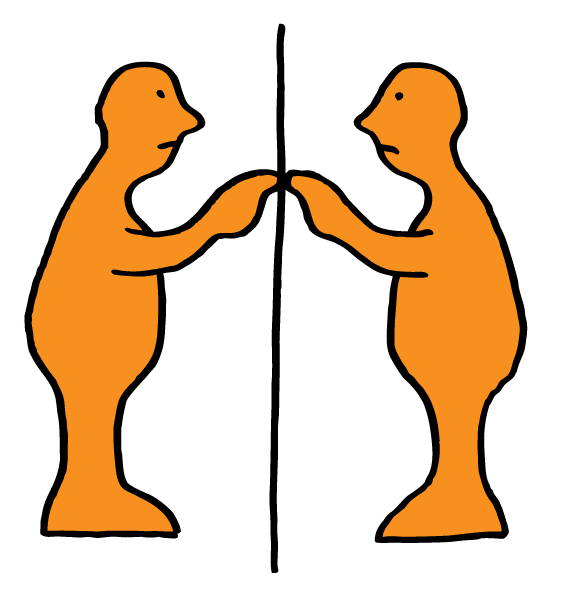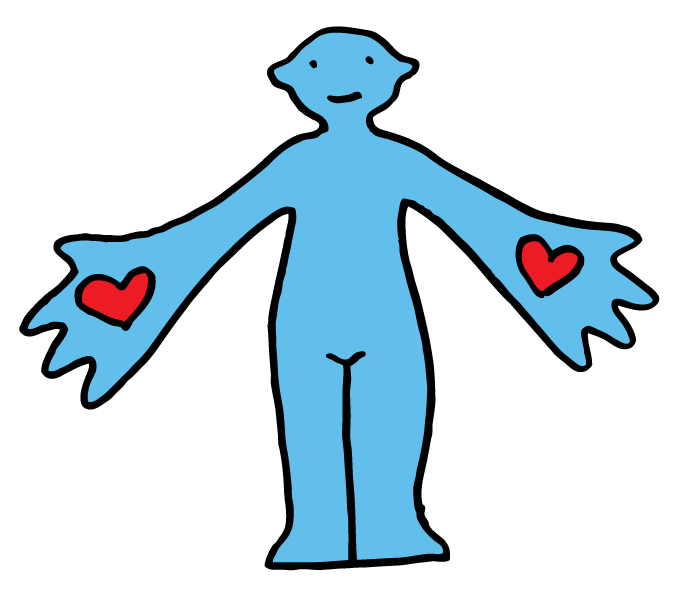

What are the basic questions a woman should ask herself in order to understand her sexuality? Constructivist psychotherapy is based on the assumption that the meaning a person ascribes to sexuality is in a constant process of change which includes both personal conscious and unconscious, verbal and non-verbal meanings and bodily messages, and broader social meanings which are ascribed to sexuality in a given historical moment. The meanings we ascribe to sexuality direct our behaviour as one of a sexual being. Body-oriented psychotherapy points out that these internalised meanings form an emotional and body scheme in women and men. Understanding your body, femininity, sexuality and your relation with a partner depend on these schemes. To understand these meanings, that is, the schemes which define sexual behavior, we propose an insight into your sexuality through four holons- gender, eroticism, reproductivity and the need for interpersonal bonding.
FEMALE SEXUALITY FROM THE PERSPECTIVE OF BODY-ORIENED AND CONSTRUCTIVIST THEORY

MEANINGS WE ASSIGN TO SEXUALITY ARE IN A CONSTANT PROCESS OF CHANGE CONSEQUENTLY CHANGING A WOMAN DURING HER WHOLE LIFE
The way in which a young woman just engaged in sexual activity understands and sees her sexuality differs from the visions of an experienced woman. Likewise, a woman in a relationship sees her sexuality differently from the one who is single, pregnant, in a long-term marriage, a young mother or a lesbian. We all want and look for safety, a pattern, knowledge that would provide us with a final certainty and show us how we are supposed to live. Constructivist psychotherapists believe that change is the only certainty. How to accept the change in social circumstances, and also in ourselves, so that it still makes sense for us, but not to feel like a victim of our own biography or a historical moment is the question we always have in mind.
Body-oriented psychotherapy is based on the premise that these internalised meanings form an emotional and body scheme of women (and men). These, often implicit schemes and models reflect on woman’s understanding of her own body, sexuality and femininity, and on the relation with her partner as well.
Alongside cultural and historical moment, the relationship in which we develop also has a strong influence on changing the meanings we assign to sexuality. Before getting married, sex can be related to prestige and feminine power on the one hand, or shame or fear of being labelled on the other hand. In marriage, at some point, sex can be more connected to family planning and, during pregnancy, to baby’s safety. Nowadays, in Croatia, the meaning of sexuality is related to the domain of religiousness, family values and human rights since it is being decided whether legal institution of marriage is reserved exclusively for the relationship between a man and a woman, or same-sex unions can also be registered as marital.
UNDERSTANDING YOUR OWN SEXUALITY MEANS TAKING INTO CONSIDERATION NOT ONLY THE VERBAL AND THE RATIONAL, BUT ALSO EMOTIONS, BODILY SENSATIONS, NON-VERBAL AND UNCONSIOUS MESSAGES
The attitude we have to our sexuality involves not only loud and clear messages we receive from our parents, peers and media, but also the messages we get from our own bodily sensations during sex. Meanings we assign to sexuality are determined by the ways in which we communicate during sex as well as everything we’ve never said out loud, but arouses us during sleep, while watching a film scene or wearing a certain type of clothes.
Awareness of these bodily sensations, on both individual and interpersonal level, determines the quality of sexuality. Bodily sensations in pelvic part often become blocked or cut out of consciousness in order to suppress sexuality. Awakening of these bodily sensations, both in pelvis and other body parts, improves and raises the level of sexual energy. The moment in which we become aware of all bodily sensations, breathing alterations and non-verbal contacts with our partner give us the opportunity to integrate our sexual energy, both bodily and psychologically, into our personality as its important part.
MEANINGS ENABLE AND DIRECT ACTION IN THE DOMAIN OF SEXUALITY
Depending on how we understood our partner’s reaction to our sexual behavior (like an approval, a request to satisfy his needs or like a mutual game) and how we reacted to this message, our actions concerning sexuality will be formed. If you believe that sex meets men’s needs, then as a woman, you will play a passive role, being a slave of others. If you love sex games, maybe you will experiment with sexual positions, places where you make love, clothes.
Being stuck in one of these roles, whether it is exaggerated passivity or the need for sexual dominance, most often represents the state of being ‘’stuck’’ in a system of meaning and emotional schemes. Is it dangerous to be active and to show sexual initiative? Where do these fears which often ‘’push in’’ women in a passive role stem from? Why is it impossible to show tenderness, vulnerability and openness during sex, which is often the demand which keeps a person in the position of trying to achieve dominance? Unless strength and tenderness, fear and trust, love and aggression are integrated, sexual energy is somehow blocked and it cannot be completely released.
In accordance to this, growth of personality, higher level of awareness and integration of emotional and body blockages lead to more mature and authentic sexuality.
FIRST STEP IN UNDERSTANDING YOUR SEXUALITY IS BECOMING AWARE OF MEANINGS YOU ASIGN TO IT
Zumaya, Bridges and Rubio (1999) suggested integrative model of understanding sexuality as a comprehensive complex system, where meanings are created in interaction of four holons- gender roles, eroticism, reproductivity and interpersonal bonding.

1. Gender role - the way we perceive ourselves as a man or a woman and all implications it has for us
‘Are you a boy or a girl?’ is the first question that shapes our identity. What is specific for certain gender is socially regulated and it has little or nothing to do with biological specifications of gender. The society we live in regulates gender roles determining the colours we wear, the way in which we express our emotions and take care of others, the professions that are suitable for us, our assumed abilities and disabilities etc. What somatic and emotional implications does this have for our identity? Which emotions are allowed and which aren’t? Which body sensations are allowed and which aren’t? How do we achieve and maintain this image of ourselves? Here are some questions for self-evaluation:
- What are the things that determine what kind of woman I need, should and can be? Do I have a choice? What is it that I must do, and what is that what I want to do? What is completely opposite of this?
- What forms of sexual interaction would fit into the idea of a woman I want to be? What emotions/bodily sensations would fit into this image? And which emotions are excluded from this picture? Have there been any changes over time?
- Are gender roles that you and your partner adopted compatible or in conflict when it comes to your sexual intercourse? How does this affect your sexuality (on individual level and in relation to your partner)?

2. Eroticism- the appetite for sexual excitement, attraction, satisfaction and orgasm
Women live in a society that sets standards concerning the role that sexuality plays in our lives, defining what desirable sexual behavior is and what isn’t, what its function is, who should attract us and who shouldn’t, what a beautiful and attractive woman body looks like, to what extent we are familiar with our sexuality, whether female sexuality is positive or negative. What is the capacity for female sexuality? Sexual appetite is largely determined by the energy level in a body, so a woman who cuts off her emotions and needs will have lower sexual energy. Here are some questions for self-evaluation:
- What do persons you are attracted to look like? What is this attraction based on (gender, personality traits, physical characteristics etc.)? How do you feel and experience this attraction in your body?
- What forms of sexual activity give you satisfaction? What activities do you avoid? Has this changed over time? In which way do you feel satisfaction in your body? What body parts do you experience and what not?
- Do you reach orgasm during sexual intercourse? What does it depend on? What body sensations do you connect with having an orgasm? What do you avoid?

3. Reproductivity- human potential to produce new human beings
For a long time, sexual intercourse hasn’t been exclusively in a function of reproduction,but the possibility of producing a new life is still its inseparable part. On the subject of maternity many things were said, but many were kept secret, too. You should start with being honest to yourself about your current personal attitude towards maternity. You should also consider how you see yourself as a mother, and if you already are one, to what extent you are satisfied with yourself in this role. Do you reject the possibility of becoming a mother or you identify your sexuality with reproduction? To what extent do you feel your pelvis, uterus and genitals as the basis for vitality and reproduction? Here are some questions for self-evaluation:
- Do you agree with your partner concerning the right moment for having offspring and the meaning you ascribe to?
- How does your and your partner’s attitude about family planning affect your sexual life?
- How do you resolve the issue of contraception? Are you satisfied with this method?
- How does the idea of having children or their modern upbringing change your identity of a woman? How does maternity or its possibility affect you as a sexual being? Does maternity represent continuation or cessation of sexual activity?

4. Interpersonal bonding - based on the ability to develop strong feelings as a consequence of presence or absence, availability or unavailability of an important person
We live in a society in which sex and sexuality are treated like goods on the market. Efficiency, speed, stamina, toughness are valued, whereas vulnerability and sensitivity aren’t popular. Are you looking for relief, fun, adventure in sex, or intimacy is an important part of sexuality as well? To what extent are you able to accept your strong feelings and feelings towards your partner? To what extent are you capable of emotional exchange? How does your body react to emotions and intimacy? Here are some questions for self-evaluation:
- Would you describe yourself as someone who wants a relationship or someone who runs away from bonding with a partner? In what way could another person notice this in your behavior and in your words? In what way do you send this message non-verbally?
- Do you feel confident or insecure about intimacy and bonding in your relationship? Is bonding an integral part of your relationship with a partner or not? How do you emotionally experience intimacy?
- Do you need the same level of intimacy as your partner does? In what way do you expect bonding to be shown?
Each of these holons impacts one another creating a comprehensive and, for every woman, unique story of sexuality. Identifying and understanding the ways in which each of these segments contributes to personal understanding of sexuality as a whole is of paramount importance for understanding the actual problem, and a person possesses the ability to accept the actual change in sexuality that may come. Becoming more aware of all aspects of sexuality and accepting them is a prerequisite for the development of personality and a quality sexual life.









